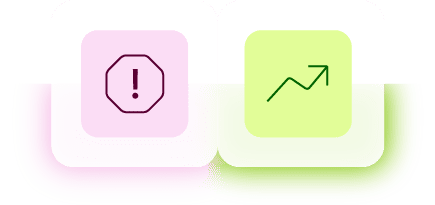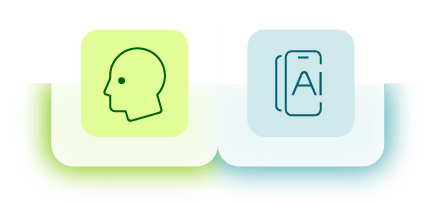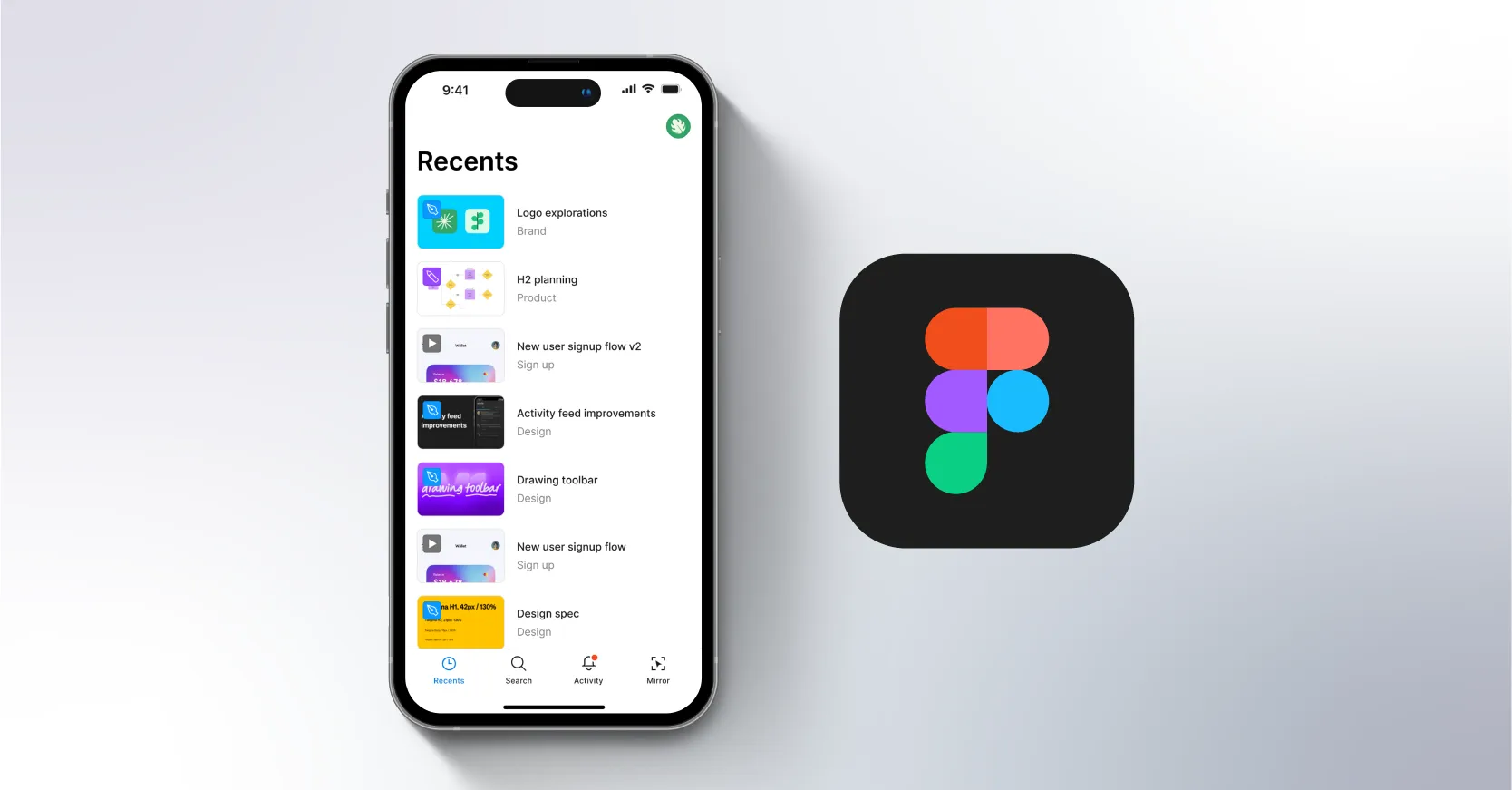When we set out to build Luciq, we weren't just creating another set of developer tools. We were building a mobile observability platform to redefine the entire discipline of mobile maintenance, recognizing that the future required us to move beyond today's limits.
For over a decade, mobile teams have lived under pressure: pressure to ship faster, pressure to deliver flawless performance, pressure to keep users engaged in a crowded market. But the tools they’ve been given haven’t kept up. They report problems after users experience them, and they rely on manual, reactive work that slows teams down and burns them out.
We believed there was a better way.
Luciq is our answer: an AI-powered mobile observability platform rooted in a new paradigm we call Agentic Mobile Observability, purpose-built to elevate developer productivity and accelerate impact.
At its core, Luciq helps developers fix bugs faster and get back to building. Simple bug and crash reporting aren't enough today. That's why we first built the most complete mobile observability solution, giving teams a holistic view of what's happening with industry-leading features like Session Replay, Release Management, and Automated Triaging.
Now, Luciq takes that deep expertise and redefines the dynamic. Instead of reacting to failures, Luciq empowers mobile teams to prevent them. Instead of reacting to failures, Luciq empowers mobile teams to prevent them through AI-powered mobile development that proactively identifies and resolves issues.
And instead of asking developers to do more with less, Luciq helps them do less maintenance and more meaningful work.
Why Mobile Needed a Turning Point
Mobile development has gone through two major eras so far. The first was the Mobile-First Era, when native SDKs, app stores, and mobile design patterns laid the foundation. The second was the Intelligent Delivery Era, marked by applying SDLC and DevOps best practices, a focus on stability and performance, and increasing user expectations for quality that pushed teams to move faster while keeping apps stable.
But as mobile matured, the cracks began to show.
Even with modern CI/CD pipelines, releases are risky. Even with advanced crash analytics, teams still spend hours triaging, debugging, and manually patching regressions.
Developer productivity is under pressure. 65% of mobile developers report burnout from constant debugging, and 77% of companies say app quality is a top driver of retention and revenue. This trend reflects the need for smarter, AI-powered mobile observability that lets teams focus on innovation, not firefighting.
This is the moment for the Agentic AI Era, and this is where Luciq comes in.
What Agentic Mobile Observability Means
Agentic Mobile Observability represents a shift from observability as reporting to observability as autonomous, AI-driven mobile observability and problem-solving.
With Luciq, intelligent AI agents become active members of mobile teams. They:
- Detect regressions, anomalies, and performance bottlenecks before users are affected
- Analyze root causes in context and deliver intelligent recommendations
- Autonomously test code changes against real production data
- Confidently deploy fixes and monitor their impact post-release
Instead of dashboards full of noise, developers get clear, prioritized actions. Instead of firefighting, they can focus on building.
This isn’t just automation. It’s delegation: entrusting operational complexity to AI agents so developers can spend their energy on innovation.
Designing for Developers
In designing Luciq, we focused on improving developer velocity and enabling exceptional mobile experiences through an experience developers love to use. As a product manager, I’ve always been fascinated by how developers and engineering teams think, particularly when confronting challenging “day two” problems. They are naturally curious, relentlessly analytical, and deeply motivated by meaningful work. That same spirit is what pulled me toward product management; the chance to explore complex problems, design elegant solutions, and see them come to life in the hands of real users.
So when we built Luciq, our first principle was simple: create a platform developers love to use.
That meant obsessing over developer experience:
- A lightweight SDK that integrates in minutes
- An intuitive, uncluttered interface that reduces friction
- Seamless setup across iOS, Android, and cross-platform frameworks
- Clear instrumentation, clean visualizations, and simple configuration
We also designed Luciq to grow with teams. It scales from small squads to global engineering organizations, adapting to existing integrations, workflows, and toolchains. It doesn’t force teams to change their process, it amplifies it.
This is what it means to design for developers: simplicity on the surface, power underneath, all driving faster mobile app performance and happier users.
Built for Enterprise Scale
Luciq isn’t just for developers. It empowers enterprises whether they are adopting mobile observability for the first time, modernizing fragmented in-house tooling, or scaling an enterprise observability platform
In large organizations, mobile apps are now the front line of the customer experience. The scale is massive, the stakes are high, and the margin for error is razor-thin. Yet many mobile teams are still buried under manual toil: discovering, triaging, assigning, debugging, fixing and reacting to problems only after they hit production.
Luciq changes that dynamic. Our mobile observability platform helps enterprises:
- Reduce operational burden through autonomous issue detection, assignment, prioritization and remediation
- Improve developer velocity by freeing teams from maintenance so they can build features
- Increase mobile app performance and reliability by catching regressions early
- Leverage our robust data foundation to build toward AI-Driven observability, delivering frustration-free mobile experiences at scale.
Enterprises no longer have to choose between speed and stability. Luciq delivers both, with AI-powered mobile development that transforms performance at scale.
Rethinking Observability for the AI Era
Traditional mobile observability has always been passive. It collects logs, shows dashboards, and waits for humans to connect the dots. This reactive approach forces developers into a cycle of guesswork and wasted time.
Luciq redefines observability as an active discipline. Our platform continuously gathers crash reports, performance telemetry, user behavior data, and UI traces. Then our AI agents reason about that data, detect risks, and take action.
They don’t just flag anomalies—they resolve them. They learn from every incident, getting smarter with each release. And they operate across the entire lifecycle, from development through post-release monitoring, so teams are always ahead of the curve.
This is the difference between seeing problems and preventing them altogether.
Inside the Product: Luciq’s Core Modules
Luciq’s mobile observability platform product architecture is built around four core modules, each powered by AI agents:
- Observability: Holistic signal capture including APM, Crash Reporting, and Session Replay to understand every user experience.
- Intelligence: AppIQ Score and Smart Triage provide automated insights to prioritize issues based on business impact.
- Resolution: Automated debugging with Root Cause Analysis and accelerated fixing via SmartResolve (suggested fixes/PRs).
- Prevention: Confident releases enabled by Real-time Alerting, Release Management, and controlled Feature Flag rollbacks.
Together, these modules give teams a complete feedback loop that operates continuously, without manual oversight; its observability is designed for the velocity and complexity of modern mobile, driving developer productivity at every stage.
Why This Matters
The rise of AI-powered mobile development marks a fundamental turning point.
For developers, it means less firefighting and more flow.
For enterprises, it means faster releases, lower costs, and happier users through frustration-free mobile experiences and better mobile app performance.
For the mobile ecosystem as a whole, it means moving beyond the limits of human bandwidth, so creativity and innovation can finally move at the speed of imagination.
Luciq exists to make that future real, through Agentic Mobile Observability that bridges developer productivity and enterprise impact.
Our mission is simple: help mobile teams build boldly. Give them the unrivaled data clarity to see problems coming, the data-backed confidence to release fast, and the space to do their best work. We do this by mastering mobile observability, connecting every critical signal, from APM to Session Replay, across your entire app lifecycle.
Give mobile teams the unrivaled data clarity to see problems coming, the data-backed confidence to release fast, and the space to do their best work. We do this by mastering mobile observability, connecting every critical signal, from APM to Session Replay, across your entire app lifecycle.
Because building products has never been just about shipping features. It’s about empowering people and giving developers and engineering teams the tools to create the mobile experiences that shape our digital future, all while driving measurable, lasting enterprise success.
















